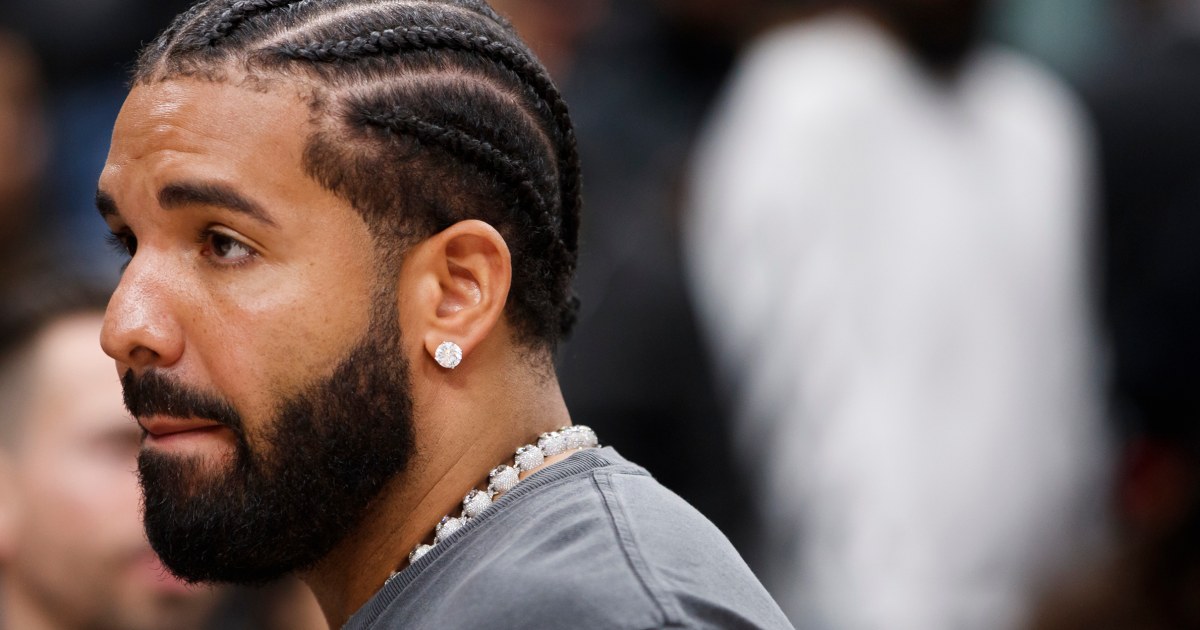Kendrick Lamar made several serious allegations against Drake during their first headline-making rap beef. In his victory-clinching “Not Like Us,” Lamar renews criticisms about Drake’s cultural identity and alleged inauthentic relationships with fellow artists.
“You called Future when you didn’t see the club/Lil Baby helped you get your lingo up/21 (Savage) gave you false street cred,” Lamar rapped. “You run to Atlanta when you need a few dollars/ No, you not a colleague, you a f— colonizer.”
For years, Drake has faced allegations that he cozies up to rap artists and replicates their sound and style for personal gain before moving on to his next project. Rappers like Earl Sweatshirt, Rick Ross and Pusha T have spoken about the purported pattern, and claims of Drake being a “culture vulture” have swirled for at least a decade.
Most of the allegations, going back nearly a decade, lie in adapting phony accents, musical similarities and covers, appearances with burgeoning artists and unproven claims of theft.
When Drake released his 2015 hit “Hotline Bling” on his Beats 1 Radio Show “OVO Sound,” it was initially billed as a “Cha Cha remix,” referring to Virginia singer DRAM’s earlier burgeoning hit. As time went on, though, Drake distanced “Hotline Bling” from the song amid allegations that he essentially stole the track. DRAM has been vocal about his stance, writing in a post on X that fall, “Yeah, I feel I got jacked for my record…But I’m GOOD.”
Drake told The Fader in 2015 that “Hotline Bling” samples Timmy Thomas’ ’70s hit, “Why Can’t We Live Together.” He chalked up similarities between “Hotline Bling” and “Cha Cha” to the artists using a similar “riddim,” sounds or riffs that act as anchors in Jamaican music.
“Imagine that in rap, or imagine that in R&B,” Drake said. “Sometimes I’ll pick a beat that’s a bit, like, sunnier, I guess is the word you used, than usual, and I just try my hand at it. And that’s kind of what ‘Hotline Bling’ was. And I loved it. It’s cool. I’ve been excited by that sort of creative process.”
Gabe Niles, who produced “Cha Cha,” has said the song does not sample Thomas’ track.
Similar controversies have followed Drake throughout his career, making Lamar’s criticisms the latest in a long history of claims that Drake’s industry practices may be exploitative. But for Drake’s defenders, the issue isn’t a matter of exploiting Black cultures and artists, but of race.
Social media posts about Lamar’s lyrics quickly dissolved into conversations about race in the hip-hop and rap industry. Drake’s fans have long held that his biracial identity — he is both Black and white — along with his Canadian nationality negatively impacts his standing in the industry.
“People cannot fathom that they gave drake (a canadian biracial man) the legacy they NOW feel kendrick (an american black man) should’ve had,” one person wrote in a post on X. Another added: “You don’t get to call out a biracial person for their blackness level. That’s colorism, and I don’t f with that.”
Amara Pope, who has spent years studying and writing about Drake’s racial complexities, said Drake’s place in the industry is skewed by both his race and nationality.
“I think that people have questions about Drake’s authenticity when it comes to his Blackness based on, not necessarily what Graham has done,” Pope said, referring to his real name Aubrey Graham, “but the dominant belief … that Canadians are exclusively white and that Canadian music exclusively folk or country and R&B and hip-hop is exclusively created for Black Americans.” Pope added that Drake represents his biracial, Canadian and Jewish roots in his music.
“Drake, for a long time, has talked about not being Black enough to be in hip-hop music,” Pope said.
Drake did not respond to a request for comment from NBC News, but he has rapped about not feeling “Black enough” for the industry and spoken in interviews about feeling “excluded” because he is half-white.
“Sometimes some of my Blackest friends can be just as cruel by making you feel excluded or making you feel like, ‘You can’t get in on this,’” he said in 2019 during an interview with Rap Radar.
“I associate myself as a Black man,” he said, lamenting feeling that he is not often celebrated as a “Black artist” for his accomplishments. “It’s something that I just acknowledge and I keep it moving.”
A.D. Carson, a professor of hip-hop and the global south at the University of Virginia, doesn’t see it that way, though. Valid criticisms of Drake shouldn’t be flattened into a tragic story, he holds, but should be taken seriously. Drake rose to popularity with melodic hip-hop music rooted in vulnerability and transparency, but this has since seemed to slip into an apparent series of personas that sometimes feels inauthentic and further removes Drake from the sound that fans first fell in love with.
Carson describes Drake’s alleged behavior in the music industry as “cultural tourism.” Carson is a tenured professor of hip-hop at t the University of Virginia. His dissertation, “Owning My Masters: The Rhetorics of Rhymes & Revolutions,” is a rap album set to be released in October.
“Everything he is in proximity to, he appropriates and mimics it,” Carson said of Drake. “He’s able to genre-hop through identity theft, and it’s genre-bending in a way that we definitely critique white artists doing. He’s more insulated from it because of what folks call ‘biracial identity.’”
He added: “Kendrick is asking, ‘what is the cultural identity? What are those things that you possess outside of the means by which you’re going to sell your next product?’ Those are the questions.”
Drake has drawn criticism for dabbling in sounds from underground subcultures and artists — like Caribbean dancehall, U.K. grim, house music and New Orleans bounce, to name a few. He has addressed the backlash, saying that he is simply appreciating the music and supporting lesser-known artists.
“I hate that people think that me being into music from these kids that are trying to make it and build a name for themselves is like, ‘Oh that’s some culture vulture,’” he said in a 2019 interview. “What does that even mean? I don’t understand. Would you rather me not acknowledge anything or not support? That’s some real confused hater sh—.”
Critics like Lamar have equated this support to exploitation. In “Euphoria,” Lamar’s initial response to Drake’s “Push Ups” diss track, he implied that Drake’s songs with Black artists result from his supposed identity issues.
“How many more Black features ‘til you finally feel that you’re Black enough?” Lamar raps.
Meanwhile, Rick Ross, in a diss track of his own, hurled insults about Drake’s race, calling him “white boy.”
Hip-hop, like all music genres, has racial dimensions and cultural affiliations. Conversations — and criticisms — of whiteness in the industry have existed within the genre for decades, especially as it has grown into a lucrative, culture-defining, billion-dollar business. Carson said that conversations about Drake’s biraciality in the industry should not be used to dismiss the valid criticisms of his allegedly exploitative music practices within hip-hop.
“Drake’s ability to operationalize Blackness insulates him from critique. Somebody would say, ‘Well, you can’t appropriate Blackness if you are Black,’” Carson said. “Nobody is gatekeeping Drake out of Blackness. Folks are asking, ‘How does he benefit from white supremacy?’”



